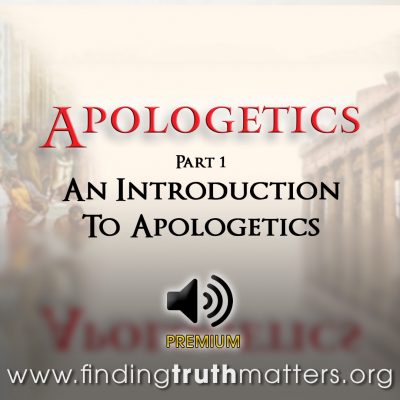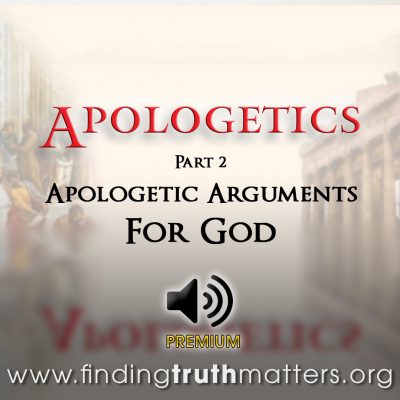home > articles > The Essence of The Reformation
THE ESSENCE OF WHAT THE REFORMERS PROMOTED CAN BE SUMMED UP IN ONE ACRONYM: TULIP
 Jesus Christ taught that following Him was only possible through the miracle of conversion. He taught that for someone to authentically claim to be a Christian they needed a spiritual encounter that changed their heart and mind. Without such a miracle, known Biblically as ‘regeneration’, no one could merely decide to be a Christian.
Jesus Christ taught that following Him was only possible through the miracle of conversion. He taught that for someone to authentically claim to be a Christian they needed a spiritual encounter that changed their heart and mind. Without such a miracle, known Biblically as ‘regeneration’, no one could merely decide to be a Christian.
JOHN CALVIN SYSTEMATISED THE REFORMATION INTO A THEOLOGY
 It’s important to appreciate the geo-socio-politico conditions at the time of the Reformation. This was the time when John Calvin, Martin Luther, Ulrich Zwingli, and others dared to defend the Biblical revelation against a militant Papal Church which had previously executed similar voices (Wyclif, Tyndale, Savonarola, to name a few) for daring to defy the teaching of the Papacy. One of the central claims of the Papacy was Universalism, the doctrine which taught that Christ’s sacrificial death was repeated over and over through the celebration of the Mass and was effective in saving all those in communion with the Roman Catholic Church (thus, universal salvation was activated by works). Since Salvation was universal (everyone is automatically saved), the Papal Church was more concerned about administering this salvation through having people in communion with it, or alternatively, disfellowshipping (or, ex-communicating) those who it disliked. Calvin on the other hand saw that Scripture did not teach universalism, but conversely- that not everyone would be saved.
It’s important to appreciate the geo-socio-politico conditions at the time of the Reformation. This was the time when John Calvin, Martin Luther, Ulrich Zwingli, and others dared to defend the Biblical revelation against a militant Papal Church which had previously executed similar voices (Wyclif, Tyndale, Savonarola, to name a few) for daring to defy the teaching of the Papacy. One of the central claims of the Papacy was Universalism, the doctrine which taught that Christ’s sacrificial death was repeated over and over through the celebration of the Mass and was effective in saving all those in communion with the Roman Catholic Church (thus, universal salvation was activated by works). Since Salvation was universal (everyone is automatically saved), the Papal Church was more concerned about administering this salvation through having people in communion with it, or alternatively, disfellowshipping (or, ex-communicating) those who it disliked. Calvin on the other hand saw that Scripture did not teach universalism, but conversely- that not everyone would be saved.
In penning what he saw as the teaching of Scripture on matters of doctrine, he published his voluminous The Institutes of the Christian Religion. Rather than stressing the goodness of man, and therefore man’s ability to earn favour with God and His eternal acceptance, Calvin saw Scripture emphasising something quite different. Some time later Calvin’s ideas were mocked by his opponents who derisively coined the English acronym: TULIP to sum up Calvin’s teaching. Those who agreed with Calvin used this acronym for their own purposes (the promotion of what they saw Scripture teaching about mankind’s true condition, need for God, and God’s solution to man’s problem. Let’s explore what these Reformers believed.
Calvin saw Scripture teaching that Adam’s sin had affected all mankind (Romans 5:12- When Adam sinned, sin entered the entire human race. Adam’s sin brought death, so death spread to everyone, for everyone sinned). Even after Christ’s death, the New Testament still described all of mankind as being in sin (Romans 5:19- For as by the one man’s disobedience the many were made sinners… Colossians 2:13- You were dead because of your sins and because your sinful nature was not yet cut away. Then God made you alive with Christ. He forgave all our sins).
“Man is never sufficiently touched and affected by the awareness of his lowly state until he has compared himself with God’s majesty”
– John Calvin (Institutes, 1, 1, 3)
Calvin concluded that the Scriptures presented mankind without Christ as being totally depraved. ‘Totally depraved’ does not mean that a person is not capable of doing any good, Calvin said that God had gifted the world with two kinds of grace: prevenient grace (or, “general” grace) which enables even the unregenerate to be “civil”. But this God-given grace is only sufficient to enable mankind to be civil (which he may choose not to be), but it is not able to regenerate a person for their salvation. The grace that regenerates a sinner to fellowship with God is known as saving grace. Without this saving grace a person can not be saved or made right with God. Because it is “grace” (a free and undeserved) it can not be “activated”, “decided”, or “qualified for.”
Calvin concluded from Scripture that no-one could experience God’s saving grace unless they were regenerated by God. This is what Ephesians 1:4 says-
Long ago, even before he made the world, God loved us and chose us in Christ to be holy and without fault in his eyes.
And Romans 9:11-
But before they were born, before they had done anything good or bad, she received a message from God. (This message proves that God chooses according to his own plan,
Since God’s calling and election for salvation is by grace, it can not be presented to man conditionally (otherwise man would have to meet the conditions and this would in affect be ‘earning’ it). Therefore, God’s election to salvation is unconditional.
Calvin also considered whether the claims of the Roman Catholic Church that all are saved (universalism) was Scriptural. He noted Christ’s words at the Last Supper, where He said that His atoning death (‘Blood’) would not be shed for all, but-
for this is My blood of the covenant, which is poured out for many for the forgiveness of sins.
Matthew 26:28
To Calvin, Christ’s atoning death was only effective for those whom God had elected to receive His saving grace. He saw the only alternative to this was what the Roman Catholic Church was promoting, universalism. He called this position, that only those who receive Christ’s salvation through the elected saving grace of God, limited atonement. These elect are not only subject to the Gospel’s general (external) call to salvation, but graciously subject to a specific (internal) call (note Acts 13:48; John 1:12-13). This internal call is an act of God’s irresistible grace. We note Romans 9:16-
So receiving God’s promise is not up to us. We can’t get it by choosing it or working hard for it. God will show mercy to anyone He chooses.
Romans 9:16 NLT
Since God calls and converts He is well able to keep those He saves. Salvation is a relationship with God. While in that relationship with God, our sin may cause us to break fellowship with Him, but if we have been truly redeemed we are drawn back into fellowship with Him due to our abiding eternal relationship with Him. Note John 10:27-28; 6:47; First Corinthians 10:13; and Philippians 1:6. Calvin called this the perseverance of the saints.
In summary, TULIP therefore, is an acronym for-
T otal depravity of mankind
U nconditional election
L imited atonement
I rresistible grace
P erseverance of the saints
(Related article: The Pillars of Biblical Christianity, Sola Scriptura)
© Dr. Andrew Corbett, May 20th 2006
1 Comment
Submit a Comment
-
Sale!

5 Things We Need To Do To Break Our Church’s 200 Barrier, Premium Audio
Original price was: $1.75.$0.95Current price is: $0.95. -
Sale!

A Morning With Izaak Walton – The Compleat Man, Premium Audio
Original price was: $1.75.$1.25Current price is: $1.25. -
Sale!

Apologetics Part 1 – Introduction To Apologetics, Premium Audio
Original price was: $1.75.$0.95Current price is: $0.95. -
Sale!

Apologetics Part 2 – The Apologetic Arguments For God, Premium Audio
Original price was: $1.75.$0.95Current price is: $0.95.









































Reformed Theology is purported by Sproul as being opposed to the teaching of “feeling good, having a sense of belonging and part of a Family.” Sproul says that Reformed Theology is of higher acclaim and teaches about God, which brings us to the heart of true understanding of God–with the exception of the need to minister to our wellbeing. I propose 2 things:
1) That true theology as God intends it will include our physical wellbeing and,
2) Not all theology is of similar content, otherwise we would not be split into so many denominations. Even the phrase, “Reformed Theology” bears out this point. So let us embrace a true knowledge of God while still applying HIM to our every need for spirit, mind and body.